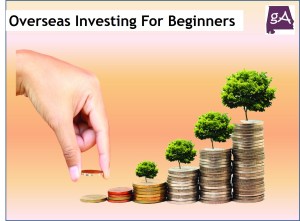
The distinctive prestige of living and working abroad earns you many rewards financially, culturally, and professionally. Different people draw different strategies for dealing with their financial positions abroad. The strategy employed trisects foreign occupiers into spenders, savers, and investors. If you want to achieve a broad investment and diversified portfolio pumping money into foreign states is a perfect strategy. Before diversifying your investment portfolio overseas, reading through the useful tips to guide you when choosing a suitable country, time, and amount to pump into investment are crucial. Your profile, present responsibilities, circumstances, income, long-term and short-term goals, and income are key in decision-making regarding the various aspects of your investment. Experts advise on extensive research and close discussions with an investment advisor on the various factors affecting each investment option before settling on the most suitable instrument. Some of the tips and tricks a beginner must weigh and thoroughly research on before pumping their money into an investment instrument include:

IMAGE CREDIT: Nataliya Vaitkevich from Pexels
Type of Investment
Choosing a type of investment entails grouping the most suitable group of assets to pump your money into based on your investment goals. You can invest in types of assets, including properties, shares, fixed income securities, forex, etc. The investment type chosen depends on the time frame you hope to work with and the level of risk tolerance. Over time exchange-traded funds (EFTs) and mutual funds have proved the most common and easiest foreign investment methods. Mutual funds are further divided into four, international funds, country funds, regional funds, and sector funds. International mutual funds involve investing in broad instruments in many countries. Regional mutual funds cover defined regions such as Asia, Europe, etc., while country mutual funds work in specific countries only. Finally, sector mutual funds involve investing in either gold, oil, or energy in several countries. For forex asset investment, you should consider taking a forex trading course to further educate yourself on the pros and cons involved.
The Most Suitable Place to Invest
The next step after choosing an investment type involves deciding the most suitable place to pump your investment. The golden rule when choosing a place to invest in a fund with a higher risk to earn more significant gains if you are a young investor and the opposite for older investors. Companies’ financial reports are key when deciding where to invest. Going through the annual, quarterly, or six-month reports of the companies interested in investing helps you make a sound decision. Learning of the various regulations in the country you choose gives you insights on laws, warnings, markets, and scams to beware of. The best place to invest is majorly determined by the data held by international financial institutions such as International Monetary Fund (IMF), World Bank, etc.
Tax Charged on Foreign Income
Before pumping your money on an investment, learning through the updated tax regulations regarding foreign income is vital. Learn and understand the tax rates affecting the type of investment you choose while ensuring you can take advantage of policies drawn by the IRS to curb double taxation. The best method you can employ to avoid double taxation on your investment involves itemizing your returns or claiming a deduction on the foreign taxes you have already paid. Educating yourself on the country’s tax policies you choose to invest in helps significantly in your decision-making.
Cost of Transactions
Depending on your type of investment and the country you choose, there are several fees charged. Some of the transaction costs involved include taxes, levies, stamp duties, clearing, and exchange fees, and depend on the specific market, your type of investment is categorized. The costs can vary significantly from one country to another, hence deciding when choosing the country’s investment choice. The place of investment chosen should be favorable in terms of costs.
Risks Involved in Currencies
Currency risks are indicated by the nature of exchange rates in your country of choice. Exchange rates are prone to constant fluctuation hence an indication of the risk level. If you invest directly into an overseas market, you should consider choosing a country whose risk level is low. After selling your assets, it is mandatory to convert them into US dollars, making you lose profit. Consulting a broker of choice on hedging the risk may help choose where, when, and how to invest.
Generally, investing abroad is a perfect choice of portfolio diversification and means to increasing your profits. However, you must make a sound and educated investment decision lest you fall into a ditch.
Categories: Tips And Advice Stuff







